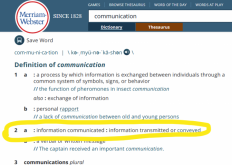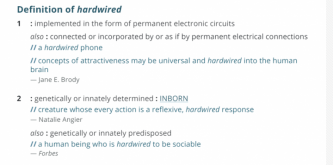In my mind, I need to differentiate between an actual communications protocol being used for control ... and what I have always called hard wired control.
I think you guys are splitting some kind of hairs to decide that 12VDC on / off is a communications signal. To me, that is "hard wired" and the most bullet proof type of control that can be achieved.
Yes, it's probably the most bullet proof one but it's only a control signal relying on something else to cut the high power path.
For my inverter, I am interrupting the power switch. That seems to me to be the most reliable way to control it that is possible other than disconnecting the AC power input.
Yes, but you added the relay yourself, as said earlier most inputs on SCC, inverters, etc. are directly managed by software.
And even your solution actually doesn't interrupt the high power path. I wonder what that switch actually controls...
The problem isn't how complex is the com, but the fact you need to rely on a bunch of other things to cut the power instead of cutting the power yourself.
I think you EE guys are making clarity impossible ...LOL
It's quite the opposite actually, by using random definitions for specific terms you usually end up with big mis-understandings.
I don't know the circuit on my inverter, but if the power control internally failed I think it would most likely fail to turn on ... not fail to turn off .... Otherwise, some EE guy didn't do a proper job.
That's only a guess, and I'm personally not ready to make that bet when safety is at play.
When the consequences are severe - I trust no one.
That is why I design in fail safes when a single point of failure can destroy my battery pack while I am in the middle of nowhere.
I feel like that is a critical role of a BMS - shut everything down if things go off the rails. No questions asked, just shut it down.
Yep, exactly

But .... you want that design to be such that other devices aren't damaged during that process. Shutting down the input power to a device would be the a good way to do that the way I am seeing it.
Ideally, yes, but when safety is the priority we prefer to let something potentially destroy itself to keep other more important things safe. A good example is a MRI quench.
Also lots of people reported MPPT SCCs are actually very resilient regarding interrupting the battery side before the PV side.
And for me, if interrupting the power to a SCC or an inverter kills it, then someone didn't do its job correctly...




